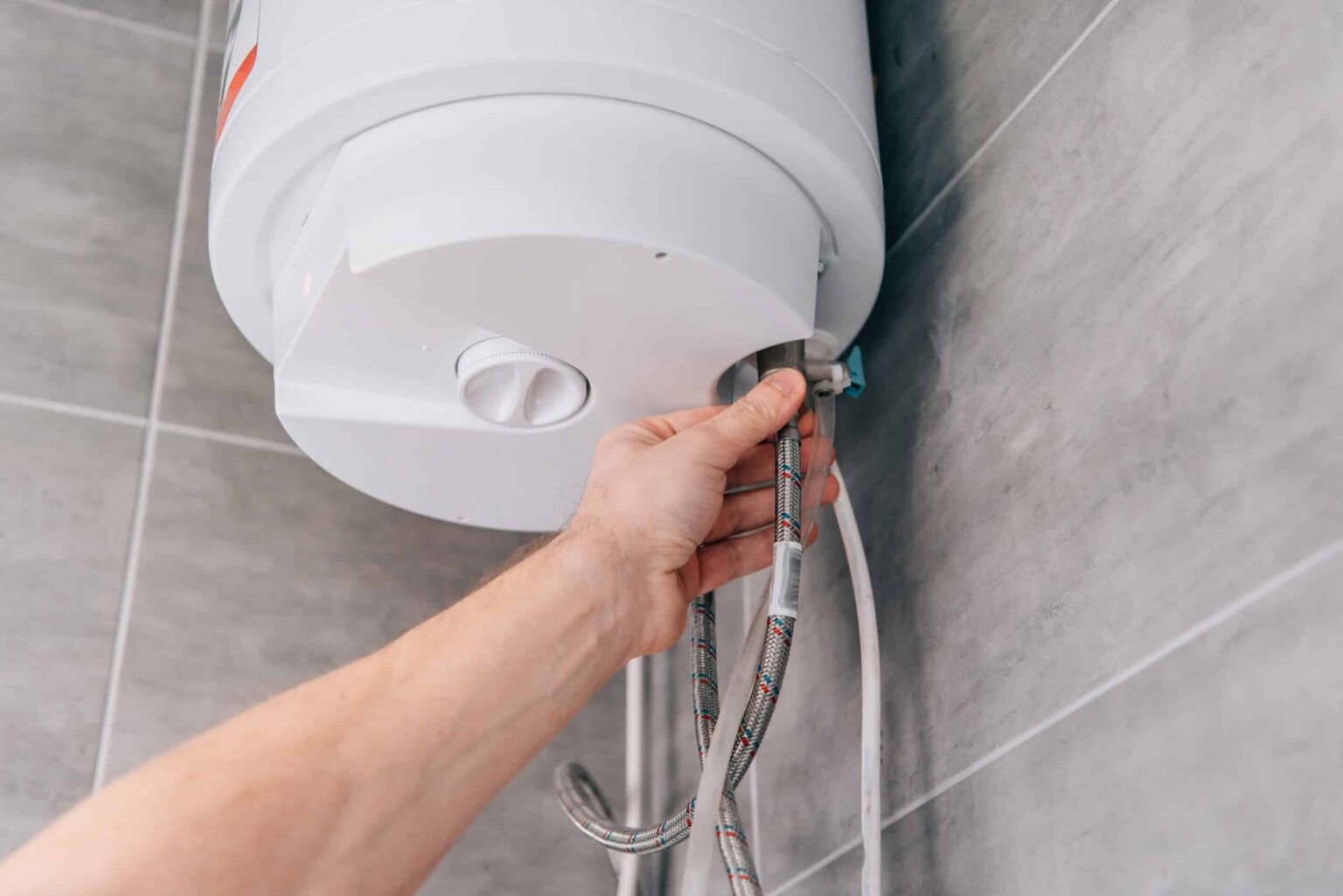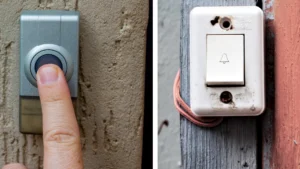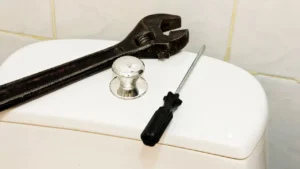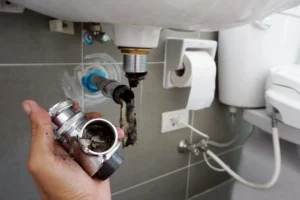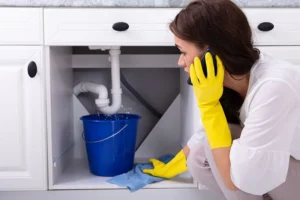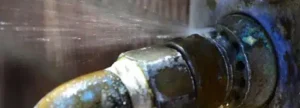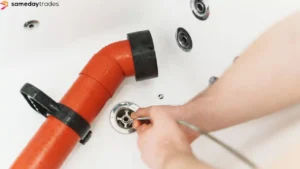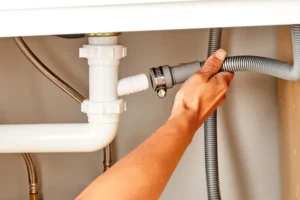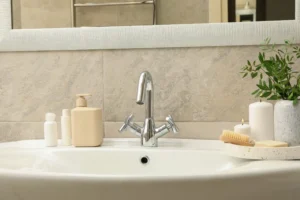Dealing with a hot water system that’s flashing error codes can be frustrating. Modern hot water systems are smart, but even they can act up sometimes. This guide will help you understand common error codes in Hot Water Systems Perth and how to fix them.
Keep reading to make your system run smoothly again!
Common Error Codes in Modern Hot Water Systems
Modern hot water systems can throw out error codes that leave you scratching your head. These codes point to issues like heat problems, sensor faults, or pressure troubles.
Overheating Error Codes
Overheating error codes pop up when your hot water system gets too hot. These usually signal issues like faulty thermostats or blocked filters. If left unchecked, they can damage the tank or other parts of the unit.
To fix this, start by turning off the system to let it cool down. Check for any dirt in vents, pipes, or the heat pump if you have one. For solar hot water systems, clean out debris near collectors to stop overheating risks.
Low Water Pressure Codes
Low water pressure codes often pop up in modern hot water systems. These messages signal the system isn’t getting enough water flow to operate properly. Issues may come from leaks, clogged valves, or low supply from the mains.
A tankless water heater might shut off completely if this occurs.
Check for visible leaks around pipes and connections first. Then, inspect filters for blockages that could limit flow. If you’re relying on natural gas or a solar heater setup, reduced pressure can also affect efficiency and energy consumption.
Adjusting the pressure valve manually may resolve it short-term—but recurring issues need expert help before damage gets worse!
Ignition Failure Codes
Ignition failure codes pop up when the system can’t ignite properly. This often happens in gas hot water heaters. Common causes include blocked burners, faulty ignition systems, or low gas supply.
Dirt and debris can also block parts of the unit, making it harder to light.
Check if your gas is turned on first. If that’s not the issue, inspect for dirt clogging the burner or pilot light area. Regular cleaning helps avoid this hassle. For solar collector systems with backup gas heating, ensure their setup isn’t interfering with ignition attempts too.
Keep safety in mind—never tamper with internal parts unless you’re trained!
Temperature Sensor Errors
Temp sensors can misread or fail. A faulty sensor might report the wrong water temp, leading to cold showers or overheating. This wastes energy and makes heating water less efficient.
Dirt or damage often causes these errors. Energy-efficient heat pump water heaters may show error codes if the sensor malfunctions. Clean it gently if dirty, but replace damaged ones quickly to avoid more problems.
Next, learn the steps for troubleshooting hot water system errors!
Troubleshooting Steps for Hot Water System Errors
Fixing hot water errors can feel tricky, but it doesn’t have to be rocket science. Learn quick steps to reset, check supplies, and spot minor issues before they grow worse!
Resetting the System
Switch off the hot water system using its power button or switch. Wait at least 5 minutes to let it rest fully. After that, turn it back on and check if the error code clears. Some systems may need you to press a ‘reset’ button—this is usually found on the control panel.
If resetting doesn’t work, there could be an underlying issue like overheating or ignition failure. Always keep your safety in mind before going further with checks! Next, inspect water and gas supplies for proper flow.
Checking Water and Gas Supply
Check the water supply first. Ensure taps are fully open and not blocked. Low flow can cause issues in hot water systems, especially in areas like Perth with hard water deposits.
Verify gas connections next. Make sure the gas valve is open completely, and check for leaks by smelling around the connection points or using soapy water for bubbles. A poor connection could impact energy efficiency and cause ignition problems.
Continue by inspecting filters or valves to maintain smooth operation.
Inspecting Filters and Valves
Blocked filters often cause trouble with hot water systems. Turn off the unit before inspecting. Remove the filter carefully. Look for dirt, rust, or clogs that stop water flow. Clean it gently under running water, then reinstall it firmly.
Valves may leak or get stuck, causing low pressure issues. Test the pressure relief valve by lifting its lever slightly—water should drip out briefly if it’s working right. If valves seem worn or damaged, replacement might be necessary to avoid bigger problems later on.
Reviewing the User Manual
After checking filters and valves, grab your system’s user manual. It’s a valuable source of information specific to your hot water unit. Most modern systems have particular error codes listed there with straightforward solutions.
Flip to the troubleshooting section or search for the displayed code. Some manuals even explain resetting steps or how to adjust settings for better performance. Watch for tips about saving energy—this can help lower costs and reduce power usage, especially in places like Perth where energy bills increase quickly!
When to Seek Professional Assistance
Some problems are tricky and unsafe to handle on your own. Calling a licensed technician is the smart move when things get out of hand.
Identifying Unresolved Issues
Error codes that won’t clear after troubleshooting can signal bigger problems. For example, if the system keeps overheating despite resets, it might point to a faulty thermostat or hidden blockages.
Ignoring ongoing ignition issues could lead to gas waste or safety risks.
Keep an eye out for recurring low water pressure alerts too. This may hint at unseen leaks or failing components like valves. Consistent errors mean it’s time to call licensed technicians in Perth for help before costs pile up—or hot showers run cold!
Importance of Licensed Technicians
Some hot water issues are too tricky or risky to fix alone. A licensed technician knows how to handle gas, electricity, and advanced systems safely. They spot problems quickly and use correct tools for the job.
A professional also helps improve energy efficiency, which can lower bills over time. In Perth, hiring a skilled expert might even help with government incentives for newer systems.
Always call someone qualified for harder repairs—better safe than sorry!
Preventative Maintenance for Error-Free Operation
Regular care keeps your hot water system running smoothly, saving you headaches down the line. Simple checks and clean-ups can prevent costly breakdowns.
Regular System Inspections
Checking your hot water system often keeps it running smoothly. Inspections help spot small issues before they become big problems. Look for leaks, odd noises or error codes on the display panel.
Dust and grime can build up over time, so cleaning external parts matters too.
Set reminders to inspect filters and valves every few months. A clean filter means better water flow, saving energy in the long run. If you own a system in Perth, keeping it maintained may also lower energy consumption during use.
Always act fast if something feels off—it saves money and hassle later!
Cleaning and Replacing Components
Dirty filters can block water flow and strain the system. Clean them regularly to keep everything running smoothly. Use a soft brush or cloth to remove debris. If they’re damaged, replace them straight away.
Valves and pipes may also build up grime over time. Wipe them down with a damp cloth. Check seals for leaks while cleaning. Faulty parts waste energy and raise costs, so swap out worn pieces as needed to reduce energy consumption in your hot water system.
Conclusion
Hot water systems can be tricky, but they don’t have to stress you out. Learn the error codes, try basic fixes, and know when it’s time to call a pro. Small steps like regular checks keep your system running smoothly.
Save energy and save money by staying on top of maintenance. A little effort now avoids big headaches later!

